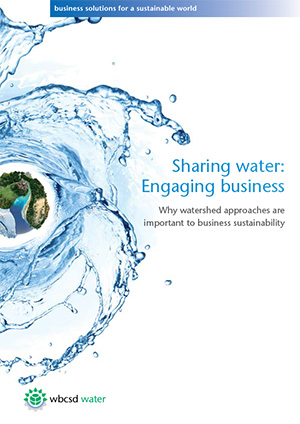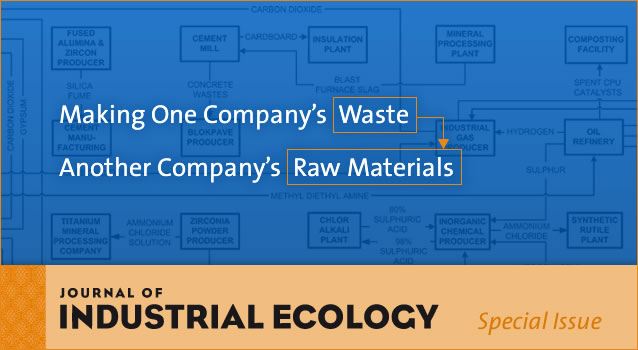 A changing climate with more frequent extreme weather events requires today’s businesses to plan for an unpredictable and inconsistent water supply via more sophisticated water management practices, according to a new report released on April 15th by the World Business Council for Sustainable Development.
The report, Sharing Water: Engaging Business, emphasizes the crucial role of business in ensuring responsible management of water resources and encourages greater collaboration across sectors. The report finds that leading companies have begun shifting their perspective beyond merely managing operational water use to becoming more conscious of how corporate actions impact local and regional water resources and, conversely, how water resources and watersheds impact business.
A changing climate with more frequent extreme weather events requires today’s businesses to plan for an unpredictable and inconsistent water supply via more sophisticated water management practices, according to a new report released on April 15th by the World Business Council for Sustainable Development.
The report, Sharing Water: Engaging Business, emphasizes the crucial role of business in ensuring responsible management of water resources and encourages greater collaboration across sectors. The report finds that leading companies have begun shifting their perspective beyond merely managing operational water use to becoming more conscious of how corporate actions impact local and regional water resources and, conversely, how water resources and watersheds impact business.
The US BCSD's Louisiana Water Synergy Project is featured as an example of community and stakeholder engagement in the New Orleans to Baton Rouge Mississippi River Corridor.
“Increasing global demand and the impacts of climate change are placing unprecedented strain on freshwater resources,” said WBCSD President Peter Bakker. “In order to ensure a viable business future, companies are calling for collective management and collaboration at the watershed level to ensure continued access to water supplies among competing demands.”


 Making one company’s waste another company’s raw material has long been one of the most intriguing notions in industrial ecology. This strategy known as industrial symbiosis — by analogy to the manner in which some species in nature cooperate to mutual advantage — came to public attention in the early 1990s. An industrial district in Denmark with a dense web of resource sharing and by-product exchanges was discovered. Efforts to replicate the Danish example led to a search for other examples and strategies to create such industrial networks. Twenty years later, numerous examples have been documented and countries from China and Korea to the UK have embarked on programs to establish or facilitate industrial by-product exchange.
Making one company’s waste another company’s raw material has long been one of the most intriguing notions in industrial ecology. This strategy known as industrial symbiosis — by analogy to the manner in which some species in nature cooperate to mutual advantage — came to public attention in the early 1990s. An industrial district in Denmark with a dense web of resource sharing and by-product exchanges was discovered. Efforts to replicate the Danish example led to a search for other examples and strategies to create such industrial networks. Twenty years later, numerous examples have been documented and countries from China and Korea to the UK have embarked on programs to establish or facilitate industrial by-product exchange. 